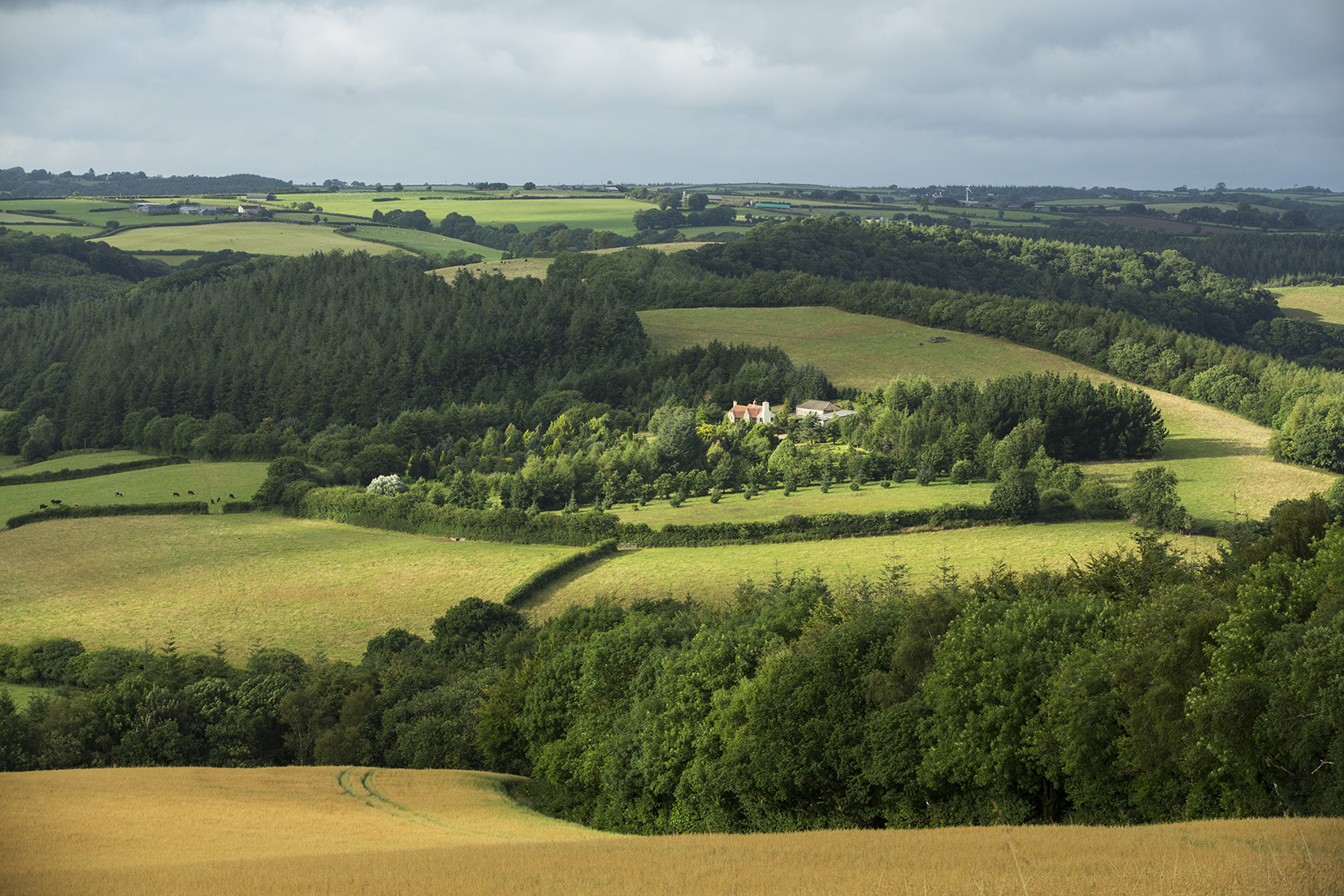Approximately 70% of Estate land is farmland (including hedgerow and farm tree elements), with a third of this managed in-hand or as share farms. The remaining land is tenanted across 33 holdings.
The Estate engages with its farming tenants on all aspects of responsible land management and encourages entry into Agri-environment schemes. The Estate recognises that the delivery of ecosystem benefits will be one of the foundations of government continuing to support agriculture in the future.
Estate land is also allocated for community use, providing allotments for schools, families and gardeners in many towns and villages. Community sports fields account for around 200 acres of Estates land.
Clinton Devon Farm Partnership (CDFP) is the in-hand farming operation of the Clinton Devon Estates. Situated in the Otter Valley. The principal focus of the 850ha business is milk production, with forage crops grown to support the dairy herd, alongside approximately 200ha of arable cropping.
The Farm’s predominant soil type is a sandy silt loam, very free draining. This means that though versatile for cropping it is very prone to leaching, erosion and capping. With the underlying geology in the Otter valley, our management approach is hugely important to South West Water as it supplies 40% of East Devon’s water from ground water abstraction. The Farm has nine South West Water boreholes within its boundary which are directly influenced by farming activities.
The dairy herd is located at Otter farm and produces 4.8 million litres of milk each year.
How we manage the farmed environment is important to both CDFP and the Estate. We have a Countryside Stewardship Mid-Tier agreement in place that is aimed at water and soil quality, and wider biodiversity. This will soon be complemented by further management practices under the Sustainable Farming Incentive. We are changing our farming structure and working practices, embracing the key principles of regenerative agriculture, so we can have a positive impact on the environment.
A recent change in our approach was to remove all cropping from the Otter River valley and reinstate as grazing grass. This will be the best method of preventing soil loss and nutrient run off. It also compliments the farm plan by extending the dairy grazing and young stock area.
We are voluntarily increasing the area of bird seed mixes and wildflowers so that we can manage them to best suit the environment. A range of environmental and biodiversity Key Performance Indicators (KPIs) are being agreed to ensure that whilst improving productivity and operational performance of the dairy operation we also increase our environmental performance. The aim is to have a balanced scorecard which supports a viable and sustainable business model.




Our holdings comprise 30 tenanted farms, two share farms and two in-hand farms. Our tenant farms range in size from 150-acre dairy holdings to 750-acre mixed units.
Increasingly, our tenant farms are choosing to diversify by bringing additional income to the farm from a range of enterprises including B&B, horse livery and industrial storage. In our commitment to a viable farming community we provide full support for enterprises such as these when they are based on sound business models and do not compromise the core agricultural business.
The terms and conditions of each agricultural tenancy are specific to the location and nature of the property and set out the responsibilities of both the tenant and Clinton Devon Estates.
The majority of tenancies will fall into two types – those agreed before 1 September 1995 known as 1986 Act tenancies, and those agreed after 1 September 1995 known as Farm Business Tenancies.


Clinton Devon Estates’ in-hand and its tenanted farms lying within the Otter catchment are included within a landscape recovery development area called Heaths to Sea. With a strong focus on river and floodplain restoration, the ambition of the Heaths to Sea initiative is to power nature recovery across the agricultural hinterlands linking three parts of the Pebblebed Heaths NNR (National Nature Reserve). We believe that this vision is compatible with a productive and accessible landscape that supports food production, net zero and timber needs.